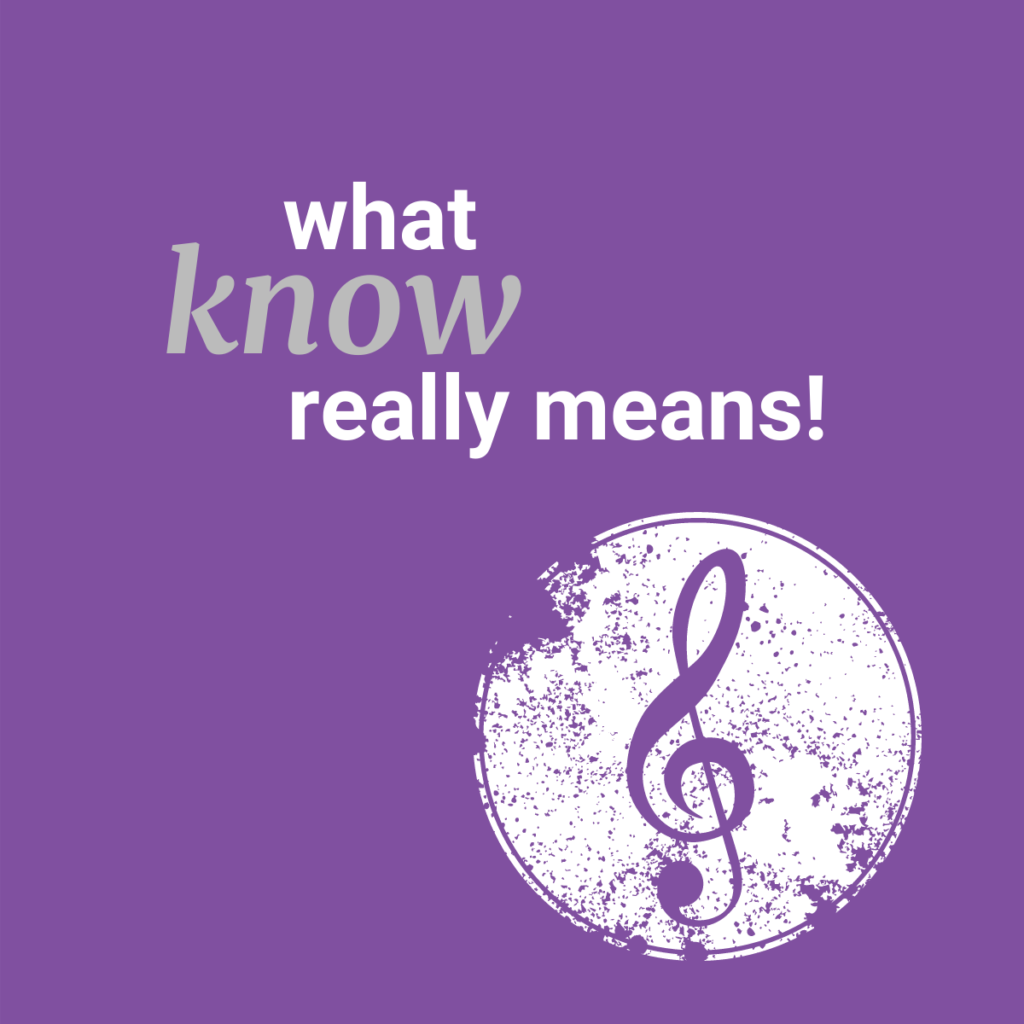What Know Really Means
Everything you need to strengthen your musicianship skills

We learn things all the time, but learning is not knowing.
Just because you can recall information for a test or parrot something back you’ve been told before, doesn’t mean you actually understand or really know these concepts.
In musicianship – being truly musically literate – a key element of really knowing is what’s called Inner Hearing. This is essentially your ability to think in the language of music, or think with understanding.
Remember, musicianship is not just cramming in lots of theory as you approach exams!
If you really know something, you can…
- aurally recognise and transcribe the element (scale, note, rhythm, chord etc.)
- visually recognise and write the element
- read or sing (in Rhythm Names/Solfa/Letter Names) the element
- improvise and Compose using the element
How to check if you really know something?
Use the concept you know and improvise with it!
Setting yourself parameters for your improvisation will mean you are focusing on specific concepts or elements fully. These could be:
- the number of bars e.g. four
- the metre e.g. simple duple metre
- the rhythmic elements to be used e.g. crotchets, quavers and crotchet rests making sure you choose any you are specifically practicing
- the melodic elements to be used e.g. the notes from the do pentatonic scale
When you improvise, use Rhythm Names for rhythm and Solfa for melodies, otherwise there is no conscious work happening. A great way to check what you sang/said was correct is to record it and play it back. See Self Recording in Practice for more about this.
Benefits
- being able to tell the difference between regurgitating information for a limited timespan or purpose and actually understanding and knowing it is key to life-long learning
- shifting perspective of why you’re learning this stuff is more engaging – you’re not just doing it to pass a test, you’re training yourself as a musician
- aiming for knowing targets gives a clear goal for your music study – if you can’t “think in music” then you know you’ve still got to work at it a little more
- understanding the overall aim – which is to know – also helps give a realistic sense of your progress, it should take time to really embed these skills
Important note:
It can be really easy to get overwhelmed by the things you need to have learned – music language is comprehensive and rigorous! Allow yourself plenty of time, allocate energy and effort into regular Practice, break concepts and elements down into their smallest parts and keep reminding yourself – “learning is not knowing.”
Read on for more….
Just as with Memorisation and Composition this approach is an extra layer of understanding. True music literacy is being fluent in the language of music and Audiation is a tangible way to track your progress and proficiency.

